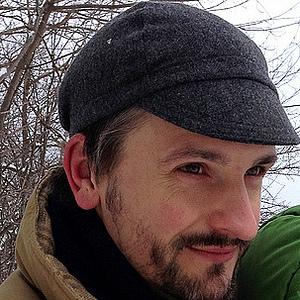
An interview with Robert Prinz, Education Director of Bike East Bay.
Tell us a little about yourself.
I’m the Education Director of Bike East Bay (BEB), an organization that started in 1972. I became passionate about bike advocacy after moving to the Bay Area. I started biking to work and considered myself lucky when I found a good bike connection. Once, in Emeryville, I noticed a pothole and submitted a pothole hazard-report via BEB’s Hazard-Report page. It actually got fixed! I wanted to learn more about BEB’s services. Around that time, I got heavily involved with Emeryville’s bicycle planning process and soon after chaired the Bicycle and Pedestrian Advisory Committee.
I started to teach part-time at BEB, and collected many ideas for bike education. BEB hired me as an intern, and eventually as its first full-time staff devoted to bike education. I have watched the program grow, not just by the numbers, but also in course selection and geographic reach. I have been happy to partake in this transformation.
What are some major issues facing your community and how does your work address them?
Since the early 2000s, we started to provide adult education classes geared toward families and children in multiple languages throughout the East Bay. As an advocacy group, we work with jurisdictions to make the bike infrastructure comfortable and accessible for people to bike. Yet, we know that implementing infrastructure takes several years, so we focus on education and encouragement in the short term. Some people are motivated by mobility, for others it’s the health benefits. In other places, bike theft is an issue. We address those needs by offering trainings on those topics.
What barriers have you had to overcome to make an impact in your community?
The education program deals with the individual. We encourage individuals to bike safely in any environment. Oakland and Fremont are 25 miles apart and inherently have different issues in their environments. Oakland ranks top ten nationally for bicycling mode share, one-third of households are families, and it still faces challenges like crime and traffic density. Contrast this with Fremont, which was developed at a later time, has one of the lowest crime-rates in the country, and seventy-five percent of its households are families. Fremont bicyclists deal with biking on a network of high speed arterials. As you can see, getting people on a bike in a very diverse region means shifting our focus. We do this from an education standpoint.
What advice would you give to someone who is interested in supporting similar work?
Your classes are more than just educational opportunities. In every class, you can build consensus on important issues, get people involved in the local planning process, and identify future volunteers and advocates. We built local advocacy groups like Bike Concord and Bike Castro Valley who we provide with technical support while they help get the word out and bring local knowledge to the table.
Are there any resources that have been particularly helpful to you?
One blog I particularly like is called Totcycle, which writes about biking with kids from different age groups. I love San Francisco Bicycle Coalition’s downloadable Family Bike Guide. I’ve compiled a Family Bicycling Resource page and a page dedicated to the different transit systems and rules, as well as locating local bike shops and mechanics.